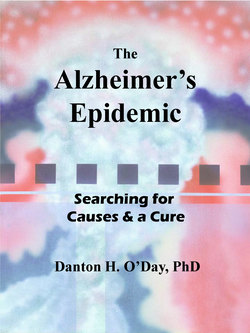Читать книгу The Alzheimer's Epidemic - Danton O'Day - Страница 31
На сайте Литреса книга снята с продажи.
The Three Stages of Dementia
ОглавлениеWhile the progression of dementia varies greatly from individual to individual, the World Health Organization (WHO) and other groups define three stages. Each of these stages falls within a relatively regular timeframe and each has specific characteristics. Here we will summarize the approximate timing and specific symptoms of each stage. These stages apply not only to Alzheimer’s disease, the most common cause of dementia, but also to other neurodegenerative diseases such as dementia with Lewy bodies and vascular dementia, among others.
The three stages of dementia are the following:
•Early stage—occurs within the first year or two;
•Middle stage—occurs during year two to five;
•Late stage—occurs from the fifth year onwards.
The following Table summarizes some of the signs and symptoms of each of the three stages of dementia (Table 3.2).
Table 3.2. The three stages of dementia.
Thus it can be seen that early on, most people will discount many of the early-stage signs and symptoms of dementia as simply a reality of the aging process. After all, as we age we all are a bit forgetful, some more than others. We all find certain words or names elusive and may forget what day it is, especially if we are retired. It is not unusual for people at any age to show phases of anger, anxiety and depression. But when these mood changes and behaviors increase or appear in a person who normally doesn’t experience them, it is time for concern. Also, when these basic signs are coupled with several other symptoms, they may be due to the early stage of dementia.
Dementia is progressive. Though it varies from person to person, the initial attributes of early-stage dementia become increasingly more pronounced as middle-stage dementia is attained. Thus early problems of forgetfulness—of words, names, time and place—are now much more common and more serious. At this stage as well, individuals are becoming less independent and much more dependent on their caregivers since help with personal care, using the washroom and dressing become a necessity. In the middle stage, serious changes in moods and behavior also become evident. While some like disturbed sleep are worrisome, others, such as wandering and hallucinations, can become dangerous.
By the late stage of dementia, the individual is fundamentally no longer able to look after him- or herself. They are no longer aware of their surroundings and issues of time and space elude them. Family and friends no longer exist for them; they are strangers, except for lapses into lucidity on rare occasion. The individual’s healthcare needs are extensive and aggression, especially hitting or kicking caregivers, is not uncommon.
The transition from a cognitively functioning person to one who only exists as a former shell of themselves is one of the most disconcerting and troublesome aspects of dementia. While a major goal of Alzheimer’s research is to find a cure, the search for pharmaceuticals that can slow or stop the progression of dementia is also of primary concern.
